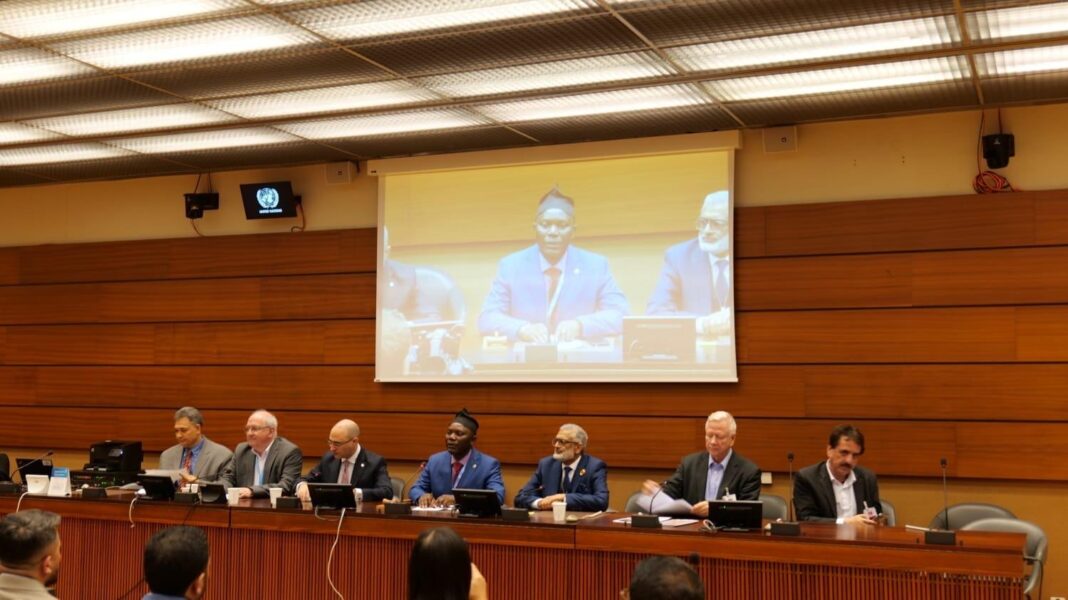
On 22 March, a side event was held at the Human Rights Council on the situation of minorities in South Asia organized by NEP-JKGBL (National Equality Party Jammu Kashmir, Gilgit Baltistan & Ladakh) in the Palais des Nations in Geneva. The panelists were Prof. Nicolas Levrat, Special Rapporteur on minority issues, Mr. Konstantin Bogdanos, journalist and former member of the Greek Parliament, Mr. Tsenge Tsering, Mr. Humphrey Hawksley, British Journalist and author, expert on South Asian Affairs and Mr. Sajjad Raja, Founder Chairman of NEP-JKGBL. Mr. Joseph Chongsi of the Centre for Human Rights and Peace Advocacy acted as moderator.
The side event was focused on the situation of minorities in Pakistan, especially in the regions of Jammu & Kashmir and Gilgit-Baltistan.
The first speaker was Mr. Bogdanos, who insisted on the need for politicians, but also for European citizens to take an interest in these issues, even if they are physically far away from our borders. He strongly criticized the policies pursued by the Pakistani government with regard to minorities and the militarization of the territory, turning prosperous areas into hostile places. He also referred to the situation in his country in Northern Cyprus, arguing that they are fighting against the oppressors.
In his speech, Prof. Levrat, the Special Rapporteur, then undertook to address the issues relating to minorities in this region, highlighting a historical “oversight”, as only one visit had been made since the creation of the rapporteurship to Sri Lanka in 2006.
He stressed the difficulty of his mandate due to the fact that there is no closed list of minorities and that each group faces different vulnerabilities in different sociological contexts. He advocated that all such persons should be treated equally, but with consideration of their particularities.
He advocated communications with NGOs and members of civil society to understand more about specific situations, and then work and collaborate with governments.
The next speaker, Mr. Tsenge Tsering, a native of the Gilgit-Baltistan region, located between Pakistan and China, explained the importance of this place in the trade relations between the two countries and that, despite being a prosperous region, the population lives in poverty, without educational and medical infrastructures and at risk of food security, used as an instrument of blackmail by the Pakistani government.
He also denounced the fact that they live without constitutional rights, without the right to vote and without the right to legislate, despite being the majority in this territory.
In his speech, Mr. Hawksley defended peaceful resistance to the oppressor and the need to develop these regions as the only strategy to avoid disaster. He made a historical comparison of the situations in Palestine and Taiwan, defending the strategy of the latter, which has become a prosperous and technologically advanced democracy by avoiding armed struggle. He emphasized the idea that it is these societies that have to make a commitment to their own future and determine what they want to be, because no country or the international community has come or will come to help.
A member of the democratic forum denounced that minorities in Pakistan are suffering genocide and that the international community ignores this situation that is why events such as these and the work of committed rapporteurs are important.











